It was constituted, among all other total twelve teaching departments, as a full-fledged department as per HBTI Society Bye-Laws in the year 1965.Initially, the Department was offering humanities courses such as literature and philosophy to B.Tech. Engineering and Technology students. Therefore, the department was popularly known as Humanities Department. Later on , as per the academic guidelines of the AICTE, besides the humanities courses, the Department started to offer a number of social science courses such as economics, industrial management, accounting & financial management etc. to B.Tech. and MCA students of different years. When HBTI was brought under the affiliation to UPTU, Lucknow in the year 2001, the courses and syllabus as prescribed and approved by the University for the Department to teach B.Tech. & MCA students were broadly stratified under the streams of English Language and Social Sciences. Besides offering various courses to B.Tech. & MCA students, the Department offer Ph.D Programme in ‘’Management’ and ‘‘Economics’ subject. The Department was recognized as Ph.D research centre in Economics by CSJ University, Kanpur in the year 1998.In order to give an appropriate name to the department, we use to call it the ‘Department of Humanities and Social Sciences’ (HSS), as the same exists in IITs.
In year 2016 status of HBTI was upgraded to the level of university as Harcourt Butler Technical University (HBTU) Kanpur. The department of humanities continued its Ph.D. programme in management and economics from its own university.
In the year 2021, Department of Humanities started Master of Business Administration (MBA) programme.
Presently, the Department is running with two regular faculty members Associate Professor, twelve guest faculty members (lecturers) along with one research assistant and two attendants. In total, the Department has seventeen members. The faculty members of the Department are highly qualified and more competent. The achievements of the faculty members are much attractive in the fields of research, Ph.D supervision, publications, participation in conferences, seminars, workshops and short-term refresher courses, organizing seminars, carrying research projects and participation in administrative and students’ extracurricular activities.
In the Department, adequate facilities are available for the research scholars. More than 1000 different reference books and 10 different international journals in the subjects of Economics and Management are available in the Central Library. Besides computer facilities in the department, there is a Central Computer Centre located in the Department of Computer Engg. & Sciences, which provides the facilities with the researchers for the massive data- processing and statistical works. For the research scholars, other facilities like room-accommodation, sitting arrangement, furniture and other supporting materials are provided by the Department. At the Institute’s level, the facilities of hostel accommodation, messing, medical, postal, banking, etc. are also available to research students.
To achieve excellence in technical education, research and innovation.
POs
NBA has given 12 Graduate Attributes (GAs). Based on these GAs Program Outcomes (POs) have been framed by NBA. We have to follow these 12 POs. These POs are generic to engineering education and applies to all branches of Engineering.
1.Engineering Knowledge: Apply the knowledge of business fundamentals and abusiness specialization to the solution of complex business problems.
2.Problem Analysis: Identify, formulate, review research literature, and analyze complexbusiness problems reaching substantiated conclusions using principles of management sciences.
3.Design/Development of solutions:Design solutions for complex business problems and design system components or processes that meet the specified needs with appropriate consideration for the public health and safety, and the cultural, societal, and environmental considerations.
4.Conduct investigations of complex problems: Use research-based knowledge and research methods including design of experiments, analysis and interpretation of data, and synthesis of the information to provide valid conclusions.
5.Modern tool usage:Create, select, and apply appropriate techniques, resources, and modern engineering and IT tools including prediction and modeling to complex business activities with an understanding of the limitations.
6.The engineer and society:Apply reasoning informed by the contextual knowledge to assess societal, health, safety, legal and cultural issues and the consequent responsibilities relevant to the professional businesspractice.
7.Environment and sustainability: Understand the impact of the professional business solutions in societal and environmental contexts, and demonstrate the knowledge of, and need for sustainable development.
8.Ethics: Apply ethical principles and commit to professional ethics and responsibilities and norms of the business practice.
9.Individual and team work: Function effectively as an individual and as a member or leader in diverse teams, and in multidisciplinary settings.
10.Communication: Communicate effectively on complex business activities with the engineering community and with society at large, such as, being able to comprehend and write effective reports and design documentation, make effective presentations, and give and receive clear instructions.
11. Project management and finance:Demonstrate knowledge and understanding of the business management principles and apply these to one’s own work, as a member and leader in a team, to manage projects and in multidisciplinary environments.
12. Life-long learning: Recognize the need for and have the preparation and ability to engage in independent and lifelong learning in the broadest context of technological change.
MBA POs
Program Educational Objectives (PEOs)
Program Specific Objectives (PSOs)
(A) Doctoral Programme
1. Ph.D. in Economics (currently 01 student enrolled)
2. Ph.D. in Management (currently 06 students enrolled)
(B) Post Graduate Programme
Master of Business Administration – MBA (Two Years)
From Session 2023-24 onwards new MBA & BBA admission at HBTU will be taken under School of Entrepreneurship & Management only
The School of Humanities & Social Sciences at Harcourt Butler Technical University Kanpur invites applications for admission in a two years full-time Master of Business Administration (MBA) program. As a mandate of university up gradation, this program is a crucial milestone in the university growth and development. This program is spread over four semesters and a summer internship. The course work is well designed as per need of the industry and fine-tuned with future need. It includes compulsory and elective courses along with a research project. The program offers specializations in Operations, Systems, Marketing, Finance and Human Resource Management
Eligibility Criteria for applying to the Program
Candidates may apply in the MBA program through CAT 2021 score or by appearing in entrance examinations at the University.
(a) A valid CAT score card
(b)Bachelors level program of 10+2+3 or 10+2+4 system in Engineering / Architecture / Medicine / Sciences / Arts / Commerce / Business Administration / Computer Application or other discipline as approved by UGC / AICTE / appropriate governing Body as applicable under the Ministry of Education with aggregate of 60% (55% for SC / ST / PD) or a CPI of 6.0 (5.5 for SC / ST / PD) on a scale of 10 from any UGC / AICTE recognized institute / University, IITs, NITs, and IIITs the final degree examination can also apply. Such candidates, if selected, will be admitted provisionally. They have to complete all the requirements of the qualifying degree at the time of joining the course.
(d) For remaining vacant seats in the MBA program University will conduct an entrance examination for Non-CAT score applicants. The schedule of examination shall be available on the University website
IMPORTANT INSTRUCTIONS
1. The instructions related to the online admissions, given here, are authorized under the Act, Ordinances, Rules & Regulations of the University.
2. The detailed information of the admission procedure will be displayed on the University website. Candidates are advised to check for updates regularly on the University website.
3. The list of the selected candidates will be displayed on the University website. The candidate himself/herself will have to keep visiting university website for the list. The list will not be published in the newspaper or anywhere else.
4. The reservation certificate for OBC (non-creamy layer) issued by competent authorities on or after 01 April 2021 will be accepted.
5. Reservation and income certificates shall be verified on respective government portals.
6. The university rule regarding any fees refund will be followed in case of cancellation or withdrawal of seat allotted.
7. University reserves the right to cancel any admission at any stage.
8. The decision of the Vice-Chancellor/Admission Committee shall be final and binding in case of any conflict or discrepancy relating to the MBA Admissions,
9. All the legal matters pertaining to the MBA Admissions shall be subject to the Kanpur Jurisdiction only
(C) Under Graduate Programme
Bachelor of Business Administration – BBA (Three Years)
GUIDELINES FOR ADMISSION TO BBA PROGRAMME SESSION 2022-23
For details, please Contact:
Head,
Department of Humanities
School of Humanities and Social Sciences
Harcourt Butler Technical University
Kanpur
Email: [email protected]
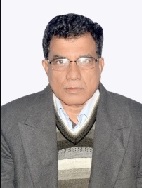
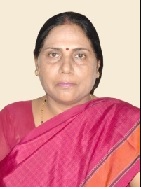
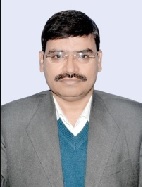
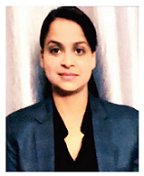
| Name | Qualification | Designation | Mobile No. | Email Id | Profile |
|---|---|---|---|---|---|
| Dr. Nida Ambreen | PhD | Guest Faculty | [email protected] | View Profile | |
| Dr. Avinash Awadh | PhD | Guest Faculty | 9839661367 | [email protected] | View Profile |
| Dr. Rajjan Prasad | PhD | Guest Faculty | 9140408476 | [email protected] | View Profile |
| Dr. Om Nath Trivedi | PhD | Guest Faculty | 08318922408 | [email protected] | View Profile |
| Mr. Ashok Kumar Yadav | Guest Faculty | [email protected] | View Profile | ||
| Ms Sonal Mehrotra | Guest Faculty | [email protected] | View Profile |
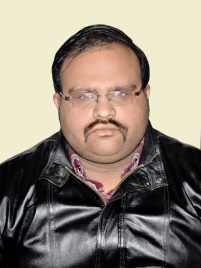
| S.No. | Program | Student List |
|---|---|---|
| 1 | BBA | View List of BBA Students 2022-2023 |
| 2 | MBA | View List of MBA Students 2022-2023 |
| 3 | MBA | View List of MBA Students 2021-2022 |
| 4 | PhD | View List of PhD Students 2022-2023 |
Software for Language Lab: – 60 Students +1 Teacher
1.Desktop Computer System HCL Infinity BL series 1280 Intel core 2 Duo Processor E8500 @3.16 GHZ, 6 MB L 2 Cache memory & 1333 MHZ FSB, Along with 15″ LCD Color Monitor, Make- HCL 2. Headphone 3. CDS – BBC English Learning Audio/Video CDS Covering areas of Grammar, Spoken English, Fluency, Listing Skill and Pronunciation Skill. 4. Training, Installation, Commissioning
Software:
(i) CPRO English Language course communication professional course.(1 CD for 61 License) (ii) E-Plus D.T (S) digital writing monitor.Portable Document. Camera (Visualizer).
In focus IN32 Multimedia Projector
Additionally 60 students digital lab is proposed.
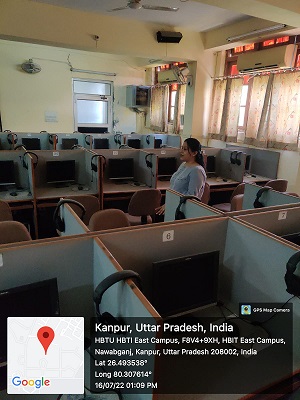
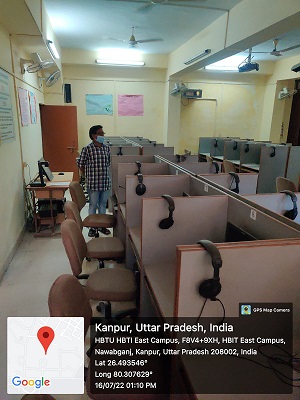
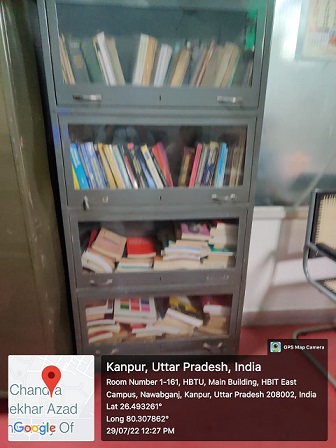
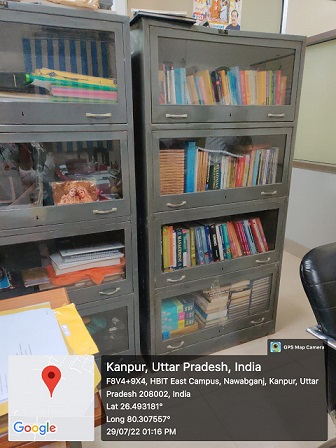
| Period | Sponsoring Organisation | Title of Project | Amount of Grant (Rs.) | Investigators |
|---|---|---|---|---|
| 01/07/1998 to 30/06/2000 | Sastri Indo Canadian Institute of Development Agency (Partnership bi-national project : India and Canada | Managing Environmental Risks analysis of India’s regulatory policy on the use of harmful household products (environmental economics) | 13 lakh (for Indian partners) | PI: Prof. K. M. Mohapatra CO-PI: Prof. Clive Southey, Prof O.P. Dwivedi Canada), Dr. R.K. Trivedi and Prof. R. Saran (India) |
| 01/03/2009 to 28/02/2011 | ICS SR, New Delhi | The study of socio-economics characteristics associated with vehicular pollution in Indian cities: a case study of Uttar Pradesh | 3,17,125/- | PI: Prof. K. M. Mohapatra Co-PI: Dr. B. Nigam |
No. of Research Publications :
A digital language lab of 60 students capacity costing of Rs. 30 lakh is installed in the department.
To know about the detailed research and development activities of the Department, please go through individual faculty profiles.
View details of publications of the department
A. Paper published in journals
B. Full Chapters Published
C. Book Published (Authored/ Edited)
D. Research Guidance
E. Training Courses, FDPs, Teaching- Learning Evaluation programs etc.
F. Invited Lectures
G. Papers presented in conference/ seminar/ workshop/ symposium
Alumni
1. Dr. Kavita Srivastava (Supervisor: Prof. K M Mohapatra)
2. Dr. Nisha Sharma (Supervisor: Prof. K M Mohapatra)
3. Dr. Harshmit Kaur Saluja (Supervisor: Prof. Vinod Kumar Yadav)
4. Dr. Shipra Srivastav (Supervisor: Prof. Vinod Kumar Yadav)